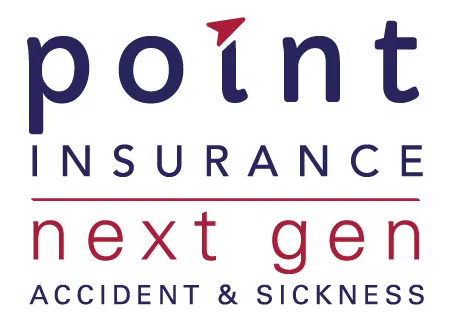Commercial property insurance is a form of business insurance designed to safeguard the physical assets of a business. It provides coverage for a wide range of assets, including buildings, equipment, inventory, furniture, and fixtures. This insurance policy protects businesses from financial losses resulting from risks such as fire, theft, vandalism, natural disasters, and other covered events.
Commercial property insurance applies to any non-residential building used for commercial purposes. If an insured event occurs, the insurance can cover the cost of repairing or replacing the building and machinery.
Why compare business insurance policies through Savvy?
100% free service
There's no need for you to pay a cent to compare a variety of competitive policies side-by-side in one place.
Compare policies online
You can consider the inclusions, premiums, benefits and other key factors easily online, whether you're at home or on the go.
Trusted insurers
Considering offers from trusted providers can help give you peace of mind that you're comparing high-quality products.
What does commercial property insurance cover?
Commercial property insurance typically includes cover for:
- Building coverage: This encompasses the physical structure of your commercial building, including walls, floors, and roof coverings.
- Fixtures and fittings coverage: It extends to the fixtures and fittings that are integral to the building, such as lifts, built-in extraction fans, air conditioners, or heaters.
- Machinery coverage: This includes coverage for machinery permanently installed in the building, such as production line machinery, lifts, hoists, or escalators.
- Loss of rental income: In the event that your building or machinery requires repairs, resulting in your tenants being unable to utilise them, commercial property insurance can cover the loss of rental income during the repair period.
Commercial property insurance applies to any non-residential building used for commercial purposes. If an insured event occurs, the insurance can cover the cost of repairing or replacing the building and machinery.
Types of commercial properties covered
Commercial property insurance typically applies to various types of commercial buildings. These may include:
- shops, retail outlets, and shopping malls
- industrial properties and manufacturing plants
- hospitals, medical, and child care centers
- places of worship and community gathering
- storage units and warehouses
- offices and co-working spaces
- contiguous office space (e.g. multiple floors of a commercial high-rise building)
All these commercial buildings require robust property insurance to protect owners or landlords in case of unforeseen disasters. To ensure you choose an appropriate insurance policy for your commercial premises, you can compare a selection of online quotes from reputable Australian insurers right here through Savvy.
What does commercial property insurance cover?
Commercial property insurance provides coverage for various events that can have a significant impact on your business. Let's explore some of the key areas that this insurance can protect you from:
Extreme weather damage
Commercial property insurance safeguards your building in case of storm, lightning, or fire damage. It typically covers the cost of building replacement, offering protection against bushfires (depending on the location and policy terms).
Floods and water damage
Coverage for floods caused by seawater or freshwater may vary depending on the location of your commercial building. Policies may have exclusions for natural flood damage, especially in flood-prone areas near major river systems. It's essential to review your policy to understand the extent of coverage for water-related risks.
Power outages
Sudden power outages can have severe consequences for businesses, resulting in income loss and potential spoilage of perishable goods. It's crucial to ensure that your policy covers the loss of income and stock during extended power outages. Be aware of exclusions related to user error, such as leaving freezer doors open or accidental unplugging.
Escape of liquids
This coverage applies to incidents like burst water pipes, malfunctioning dishwashers, or leaking appliances that cause property damage. However, you may need to demonstrate that you have properly maintained the affected pipes or appliances to qualify for coverage.
Theft and theft damage
Commercial property insurance not only covers theft but also the damage caused by thieves during break-ins, such as broken locks, doors, or damaged roofs. Keep in mind that not all policies include coverage for window or glass breakage. If protecting your glass shopfront is crucial, carefully compare insurance policies to ensure glass damage coverage is included.
Vandalism and malicious damage
Coverage extends to intentional damage and vandalism, including the costs associated with graffiti removal. Review the policy exclusions to ensure coverage for events that could pose significant harm to your commercial business as a tenant or landlord.
Impact damage
Commercial property insurance also provides coverage for impact damage. This includes incidents like cars colliding with your shopfront or trees falling onto your building, resulting in roof damage. The coverage often extends to adjacent buildings damaged by impact, leading to business closure for safety or assessment purposes.
By understanding the coverage offered by commercial property insurance, you can proactively protect your business from potential risks and ensure business continuity in the face of unforeseen events.
What isn’t included in commercial property insurance?
There can be a range of exclusions in commercial property insurance policies, so it’s important to read the small print carefully and find out what’s not covered.
As mentioned above, glass replacement and flood damage (particularly if you live in a known flood-prone area) are common exclusions. Other exclusions you may come across include:
- standard wear and tear
- operational errors (such as leaving a heater on overnight, causing a fire)
- gradual deterioration due to natural causes
- mould damage
- defective design
- asbestos and gradual pollution
- damage caused by pests or vermin (such as mice, rats and termites)
- livestock and pets
- acts of terrorism
- looting, invasion and war
- fraud, illegal activities and intentional damage
- items considered non-essential to your business operation (such as paintings, artwork or decorations in your building, which can be covered in a separate business contents insurance policy if required)
Because there can be so many exclusions in commercial building insurance for landlords, it’s well worth discussing the insurance coverage you have with the tenants of your building if you’re a landlord. This may assist you to choose the type of insurance which is most appropriate for the potential risks you face.
For example, you could find yourself uninsured if there’s an explosion in one of your shops caused by the storage of chlorine if your tenants didn’t tell you they were running a swimming pool maintenance business on the side. Unauthorised storage of chemicals is a common exclusion in business insurance policies.
How should I compare commercial property insurance policies?
When selecting commercial property insurance, there are several important factors you should compare. Let's take a closer look at these considerations:
Policy coverage
A good commercial property insurance policy provides coverage for a wide range of events, ensuring comprehensive protection. It's crucial to review the policy and ensure it includes all the necessary coverage without any significant exclusions. Remember, the best policy is the one that adequately covers all potential risks, rather than simply being the cheapest option.
Cost
Finding the right commercial property insurance also involves considering the cost. While insurance can be expensive, it's essential to compare prices and find a policy that offers a balance between coverage and affordability. However, keep in mind that prioritising events covered by the policy should always take precedence over price alone.
Maximum benefit amount
Different insurance policies may offer varying maximum payout amounts. When comparing commercial property insurance options, it's important to consider the maximum benefit available for each type of coverage. If your business requires higher coverage limits in specific areas, it may be possible to customise or tailor the policy to meet your specific needs.
Excess requirements
Some insurance policies may have excess requirements, meaning you need to pay a certain amount out of pocket before the coverage applies. Keep in mind that opting for a lower excess amount will result in higher premium costs. If you aim to reduce overall insurance expenses, consider increasing the excess amount you're willing to pay.
By carefully considering these factors, you can make an informed decision when choosing the right commercial property insurance policy for your business.
Top tips for finding the best commercial property insurance
-
Review your insurance needs frequently
Keeping an eye on your policy over time will help you ensure it remains suitable and that you aren’t paying more than you need to, as well as make sure your property is appropriately valued.
-
Make sure your estimates are realistic
Make sure you give realistic numbers for the replacement cost of your building. Don’t just guess or rely on figures that may be out of date. Do some careful research and get accurate quotes.
-
Study the PDS closely
It’s important to study the product disclosure statement (PDS) carefully when comparing any insurance policy. This document tells you in fine detail exactly what coverage you are buying and what's excluded.
-
Know where to look
Being able to see online quotes (such as those through Savvy) side-by-side will assist you in comparing policies carefully to make sure you’re getting the best deal for your business.
The pros and cons of commercial property insurance
Pros
-
Protects your property
If your building is severely damaged, commercial property insurance will cover the cost of repairs so rental loss or inconvenience can be kept to a minimum.
-
Premiums are tax-deductible
You'll be able to claim your commercial building insurance premiums as a legitimate tax reduction on your tax return.
-
Peace of mind
Having commercial property insurance will give you peace of mind, knowing your investment is protected in case disaster strikes.
Cons
-
Policy exclusions
You won’t be covered for all damage that occurs to your business premises, as there may be policy exclusions such as normal wear and tear.
-
Optional extras
You may find you’ll have to pay more for your insurance if there's an optional extra that you consider to be essential.
-
Large excess
You may have to fork out a considerable sum to cover the excess on a claim if you decide on a large excess to reduce your overall insurance cost.




















